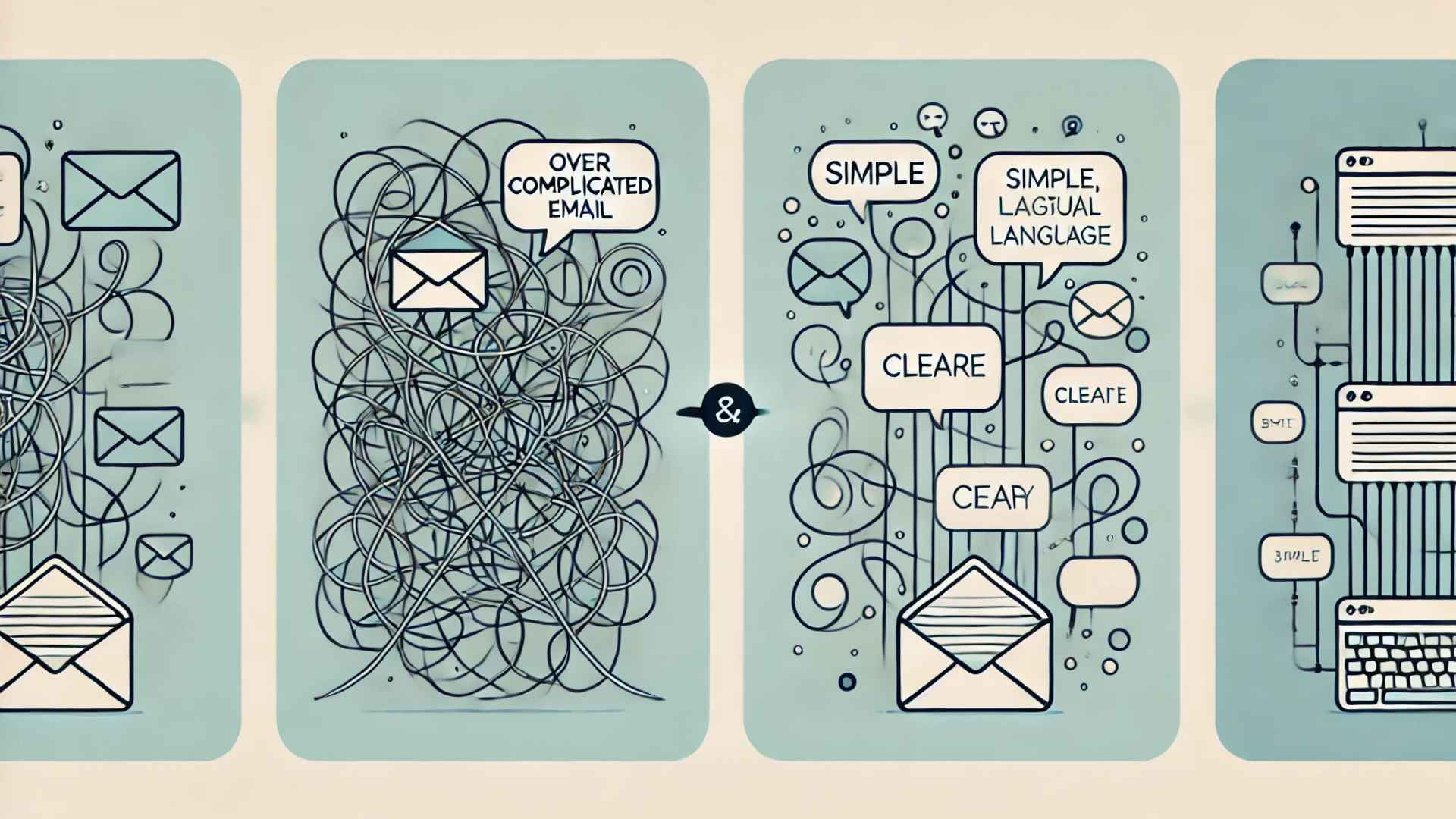
Cold emails are all about making connections, and the best way to do that is by keeping your language simple and straightforward. When your message is easy to read and understand, it becomes more persuasive and effective. On the other hand, complicated language just puts up barriers between you and the person you’re trying to reach.
Here’s why simple writing works:
-
Easy to Read: Short, clear words are quick to process. Your recipient shouldn’t have to work hard to understand what you’re saying.
-
Easier to Understand: A clear message means there’s no room for confusion. Your point comes across immediately.
-
More Persuasive: When your writing is simple, it’s easier to connect with your reader on a personal level, making your message more compelling.
Here are some examples of how to simplify your language:
- Leverage -> Use
- Facilitate -> Help
- Obtain -> Get
- Inquire -> Ask
- Execute -> Do
- Indicate -> Show
- Accelerate -> Speed up
- Terminate -> End
- Maximize -> Make the most of
- Optimize -> Improve
- Strategize -> plan
- Sustain -> Keep up
Why Casual Language Wins
Casual writing has a big edge over formal writing in cold emails. It feels more personal and conversational, which helps your message resonate. Formal writing can come off as stiff and impersonal, which is the opposite of what you want in a cold email.
Formal Writing:
Dear Zaki - We are collaborating with a CMO who manages 20 product launches per year. She has integrated AI-driven analytics into her strategy, using her team’s proprietary data to optimize campaign effectiveness. This innovative approach enables her to significantly increase ROI. I thought you might find this strategy relevant.
Casual Writing:
Zaki, we’re working with a CMO who handles 20 product launches a year. She’s using AI with her team’s data to make campaigns more effective and boost ROI. Since you’re involved in product launches, I thought you might find this interesting.
Why It Matters
The casual version sounds like it’s coming from a real person who wants to help, rather than from a corporate robot. It’s relatable, to the point, and much more likely to get a response.
When you use simple language and a casual tone, your emails are more likely to make an impact. So, the next time you’re writing a cold email, cut out the jargon and make your message as clear and direct as possible.
Your readers will thank you for it.
Talk Shop